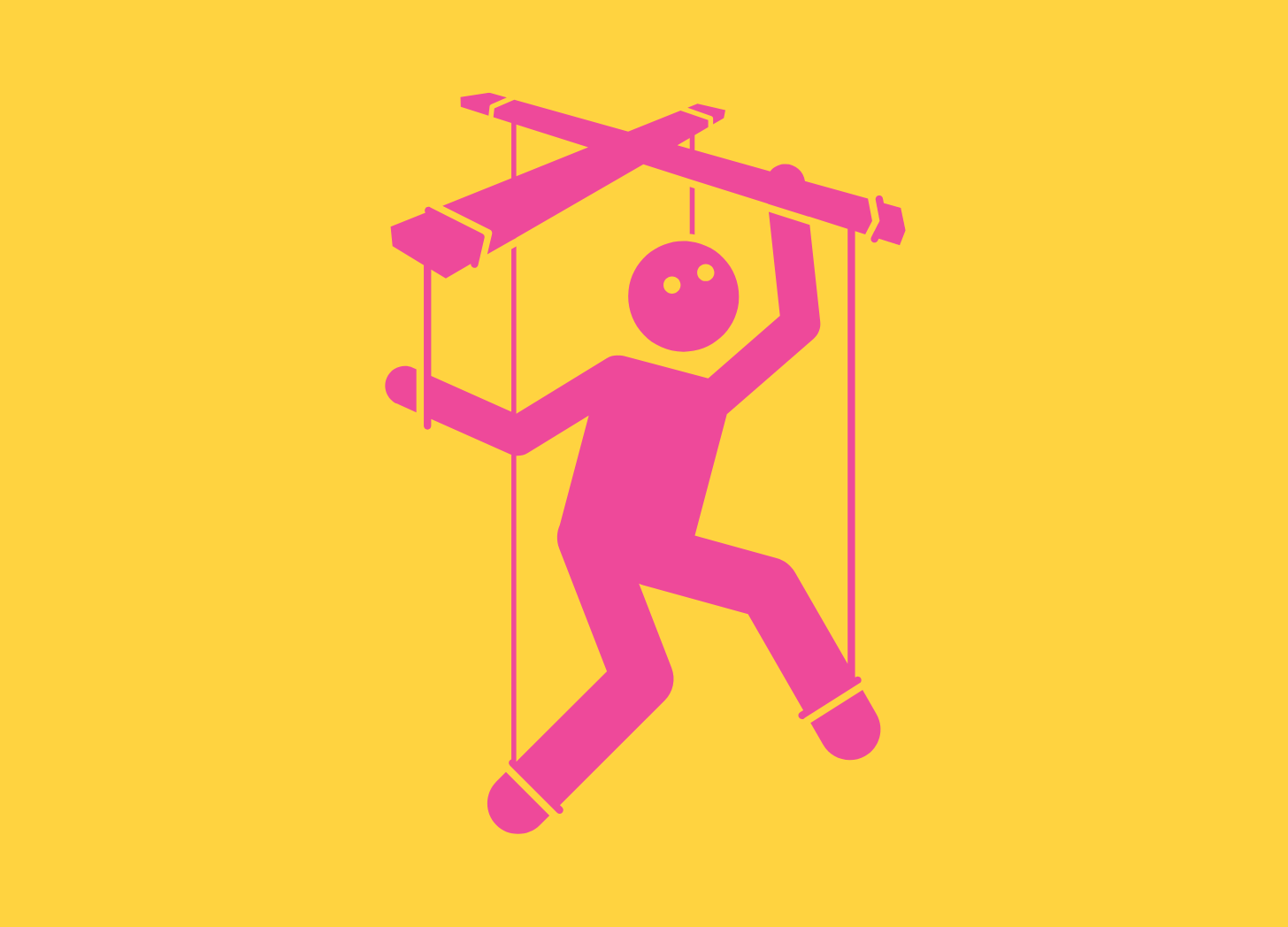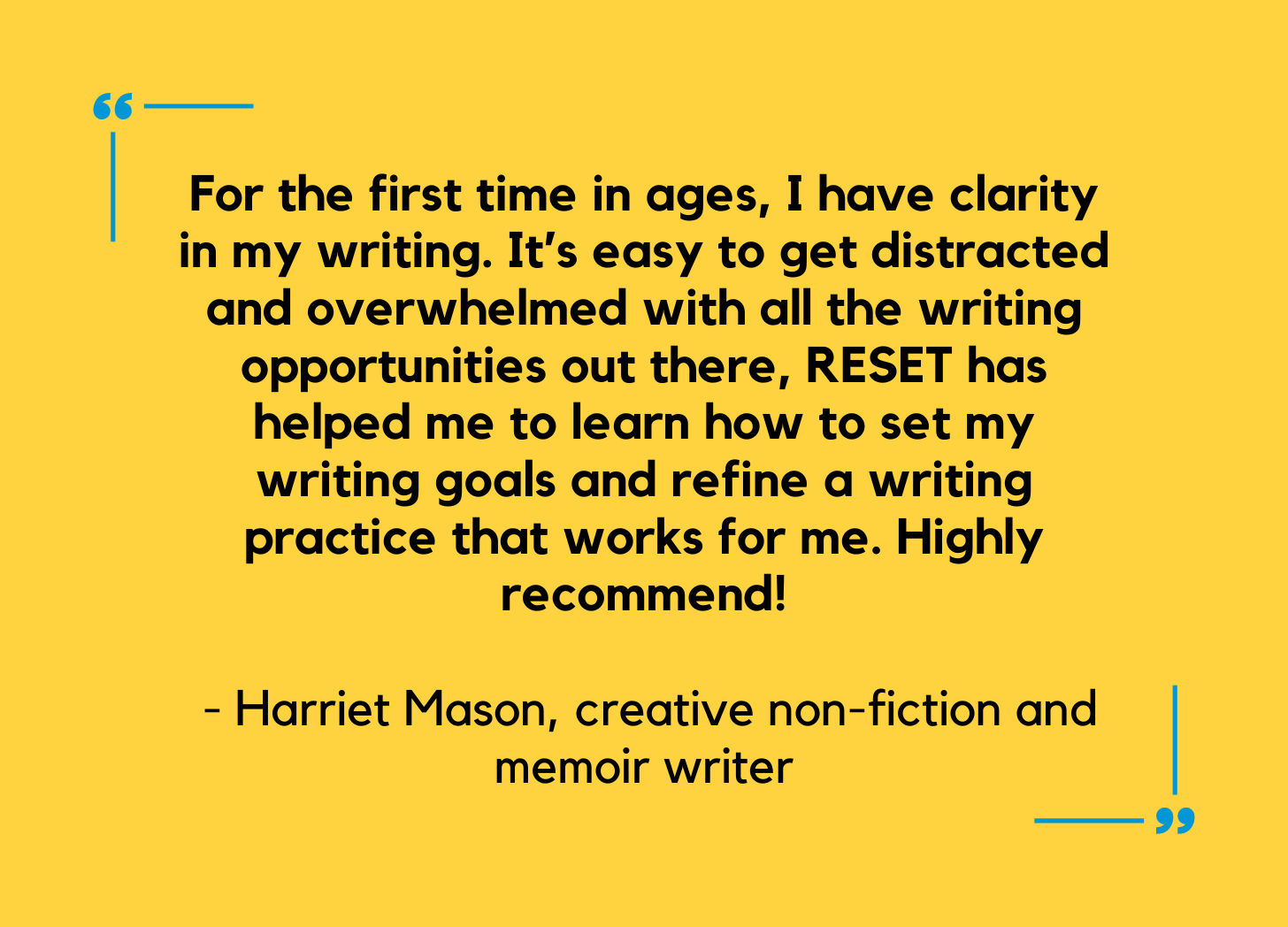Are you in control of your writing?
Chris shares an insight. How understanding the locus of control can help you start writing and keep going.
Hello, Chris here with some thoughts on how people respond to the things that throw them off course with their writing.
When we were writing our book Written, I drafted a large chunk about a concept in psychology called the Locus of Control. Developed by psychologist Julian Rotter in the 1950s as part of his social learning theory, the idea explains how we respond to the events in our lives and to what extent we believe we have agency over them. The nub of the idea is this:
Individuals with an internal locus of control believe that they have control over their own actions, decisions, and outcomes.
Individuals with an external locus of control believe that external factors, such as luck, fate, or other people, predominantly control the outcomes in their lives.
In general, it’s better to feel you have control over your life – but not to the extent that you believe you deserve every good thing that’s ever happened to you because you are a uniquely gifted and talented human being.1
At the time, I wasn’t sure how the concept fitted into the book and I struggled to explain it – so we cut the whole lot. I still struggle now but I’m convinced there’s something in it and I feel it’s an idea that can be particularly helpful for writers finding time to write and managing the distractions that stop them making progress.
What I have figured out is that agency and how in control we feel over our lives is important for our happiness - psychologists like Martin Seligman have proved this. If you don’t believe you can influence your life you tend not to give anything new a go and you miss out on opportunities. So, here are a couple of things I’m thinking about that are connected with the locus of control concept.
Don’t assume you can’t make a difference
One thing that really struck me from our last 7-Day Writing Sprint - we’re running another one now as it happens – was that some writers found that they could manage to do things that they previously thought they couldn’t do. They came to the sprint with fixed assumptions about themselves and those assumptions were, in one way or another, holding them back.
For example, before the sprint some thought that they’d never get anything meaningful done in short writing sessions or that they were never going to be able to find time to write every day. Others thought it would be virtually impossible to get any writing done because the kids were off school or their lives were jam-packed with meetings and appointments.
But being on the sprint challenged these assumptions. They found that they could move their writing forwards using shorter sessions, that writing a little every day was possible and that they could squeeze in some writing (perhaps not their best writing but some nevertheless), around their busy lives. Many writers were pleasantly surprised at what they could do when they tried and this built their confidence.
The power of experimentation
For me, the moral of my first tale is this: You only know what you can achieve if you give something a go.
Sometimes, the beliefs we hold about ourselves can limit us. When you assume you can’t do something you often don’t try. Of course, assumptions aren’t always wrong. But there’s only one way to find out what you can do – by believing you can make a difference to your life and by taking action. And so, to my second insight.
The blame game
We hear writers say that they need more discipline. That finding time to write is a matter of applying greater amounts of effort. I just need to try a bit harder. I just need to prioritise my writing. I just need to stop getting distracted.
It’s a very human response and I do this too – but when we consider our behaviour in those terms, the fact that we get distracted becomes equated with a moral failing – which it isn’t. I’d like to propose that we frame our thoughts differently and instead of attempting to mentally buckle down in the face of our distractions we adopt a different approach.
Who’s at fault?
Imagine this: you put aside an hour to write this morning but instead of doing the writing, you did other things. You got interrupted by family, you got involved in a WhatsApp chat and perhaps replied to a few emails. In one way or another you got distracted and you ended up doing something else instead of the thing you wanted to do.
Who’s at ‘fault’ here? Are you to ‘blame’ or perhaps someone else? Was your time taken from you or were you the one responsible for letting it slip through your fingers? Everybody gets distracted but how we respond when we do isn’t always helpful. It can lead to feelings of guilt, frustration and disempowerment – this is where the problem lies. Which leads me to the moral of my second tale.
Your distractions are real - but can be challenged
Many writers say to us that they have no time in their lives to write. They feel overwhelmed, overworked and overburdened. They can never make progress because for whatever reason, they get held back by work responsibilities, interruptions, focus, time – the list is often endless.
The last thing any writer in this situation needs is to be told that they’re not as busy as they think they are. Your distractions aren’t illusions – they are real – but you are not at the mercy of them either. You don’t need to apply more effort but as the locus of control idea teaches us, you do need to take action of some kind, and this starts with the belief that you are not out of control and you can influence the direction of your life - if only in a small way.
Ready for a RESET?
We are delighted to announce that our summer Writing RESET course is now open for enrolment. With direct support from Bec and Chris, our RESET programme gives you the tools and approaches to keep going with your writing - and finish. The course is a gentle but powerful way to build a writing routine that works for you.
RESET starts on the 31st of May with a goal setting webinar and lasts for six weeks. Places will be available until the 24th of May and cost £299 each. If you have any questions, email us at hello@prolifiko.com and we’ll get right back to you.
As an example of someone who skews hard towards this mindset, please step forward the ex-British Prime Minister Boris Johnson who a few years ago, accepted a £500k advance to write a book about Shakespeare despite also being given the job of Foreign Secretary. He subsequently had to return the advance admitting that even he couldn’t do both demanding jobs. I will leave it to you to decide whether he was capable of doing even one job…









Fascinating piece, Chris! At university, I learned about learned helplessness as being a learned state. But when I began researching it awhile ago, I discovered that learned helplessness (the belief that one has no control) is the brain’s neurophysiological default state. Seligman conducted research on this almost a decade ago and discussed how shock and learning that one can escape shock changes the neural pathways to internal locus of control. I wrote about it from the context of brain injury, how medicine reinforces the default state and how one could unlearn internal locus of control, given enough pressure combined with injury. https://www.psychologytoday.com/us/blog/concussion-is-brain-injury/202201/learned-helplessness-brain-injury-and-the-pandemic
I think you’re right about experimenting. The brain’s default state won’t change without learning one has control, over and over again. It’s interesting (and frustrating) that people will take medications with terrible effects on their functionality and health over neurostimulation like audiovisual entrainment, which doesn’t cause side effects and enhances function and health. Your article is making me think their default state of learned helplessness or external locus of control is at play here. They default to what their doctors (who also fear learning) believe rather than rely on what they know and understand.
This is so interesting to me. In my book, ‘Weather Report’, in addition to the daily practice, I included a weekly reflection where there is an invitation to list three small things that went well for you this week. The next part is to write about why these went well, what action did you take to bring about this good outcome. When I’m talking about it I always frame the latter in terms of agency, of developing a sense of one’s own capacity to take even small actions to improve a situation. This is a superb post, thank you!